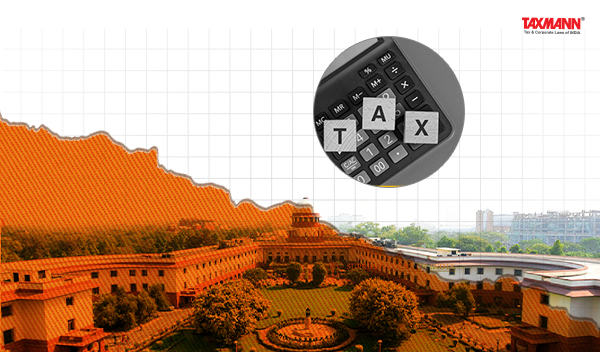Supreme Court Upholds ICAI’s Limit of 60 Tax Audits Per CA | Makes It Effective From 01.04.2024
- News|Blog|Income Tax|
- 3 Min Read
- By Taxmann
- |
- Last Updated on 23 May, 2024

Case Details: Shaji Poulose vs. Institute Of Chartered Accountants Of India - [2024] 162 taxmann.com 685 (SC)
Judiciary and Counsel Details
- B. V. Nagarathna & Augustine George Masih, JJ.
Facts of the Case
In the given case, the petitioners, who were Chartered Accountants, challenged the validity of Clause 6 of Guidelines No.1- CA(7)/02/2008 dated 08.08.2008 issued by the Institute of Chartered Accountants of India (ICAI) under powers conferred by the Chartered Accountants Act, 1949 (Act) on the ground that the same is illegal, arbitrary and violative of Article 19(1)(g) of the Constitution of India.
The petitioners challenged the mandatory ceiling on the number of tax audits a Chartered Accountant can accept under Section 44AB of the Income Tax Act, 1961, as per Clause 6.0, Chapter VI of the Guidelines. They also seek to quash the disciplinary proceedings initiated by the Institute in line with these guidelines.
Supreme Court Held
The Apex Court held that the Council of the ICAI had the legal competence to frame the Guideline restricting the number of tax audits a Chartered Accountant could carry out. The Court held that the ICAI was established to regulate the profession of chartered accountants, ensuring that the profession in the country maintains high professional ethics and renders quality service.
The power of the Council to regulate the profession of Chartered Accountants is not only in the interest of the Chartered Accountants but also in the interest of the public at large. As the Parliament may not always be able to amend the Schedules to the Act to incorporate newer professional misconducts, the Parliament has delegated the power to the Council to make any regulation or Guideline, the breach of which would amount to misconduct. Therefore, the regulation or Guideline issued by the Council, the breach of which would result in professional misconduct, being a part of clause 1 of Part II of the Second Schedule, must be read as part and parcel of the Act itself.
Accordingly, the Council of the Institute had the legal competence to frame the Guideline restricting the number of tax audits that a Chartered Accountant could carry out, which was initially thirty and later raised to forty-five and thereafter to sixty in an assessment year.
Further, the restriction on the number of tax audits that could be undertaken by practicing Chartered Accountants doesn’t violate the right to practice the profession by a Chartered Accountant. It is a reasonable restriction and is protected under Article 19(6) of the Constitution. The Court observed that the power to control and impose taxes is a cornerstone of State sovereignty.
The restriction imposed by the ICAI on the number of tax audits that can be undertaken by a Chartered Accountant is not violative of Article 19(1)(g) of the Constitution. The restriction was imposed by the ICAI after taking into account the letter of CBDT and the CAG Report No. 32/2014. The restriction was imposed to eliminate the possibility of conducting tax audits in an insincere, unethical or unprofessional manner. The restriction was also supported by concerns and suggestions shared by experts and practitioners over a span of thirty years. It was imposed as the best conceivable and practical measure to rectify the targeted mischief and ensure the quality of tax audits conducted by the Chartered Accountants, which is in the general public’s interest.
The idea of compulsory tax audits was neither an inherent part of the practice of a Chartered Accountant nor an essential function that could be claimed as a fundamental right under Article 19(1)(g). As carrying out compulsory tax audit under Section 44AB of the Income Tax Act,1961 is a ‘privilege’ & not a ‘right’ of a CA, the limit of 60 tax audits imposed by ICAI on every CA is to be upheld as it does not curtail the fundamental right of a CA to practice his profession.
If the Parliament, in its wisdom, at a certain future date, due to technological developments or any other reason, finds that expeditious and accurate assessments can be ensured without imposing on assessees the burden of additional requirements of the tax audit report and thereby deletes Section 44AB from the IT Act, 1961, it could not be possibly argued that the right under Article 19(1)(g) has been abridged.
Accordingly, the Court concluded that the limit of the maximum number of tax audits is valid and is not violative of Article 19(1)(g) of the Constitution as it is a reasonable restriction on the right to practise the profession by a Chartered Accountant and is protected or justifiable under Article 19(6) of the Constitution. However, the Guidelines dated 08.08.2008 and its subsequent amendment are deemed not to be effective until 01-04-2024.
Disclaimer: The content/information published on the website is only for general information of the user and shall not be construed as legal advice. While the Taxmann has exercised reasonable efforts to ensure the veracity of information/content published, Taxmann shall be under no liability in any manner whatsoever for incorrect information, if any.



 CA | CS | CMA
CA | CS | CMA
